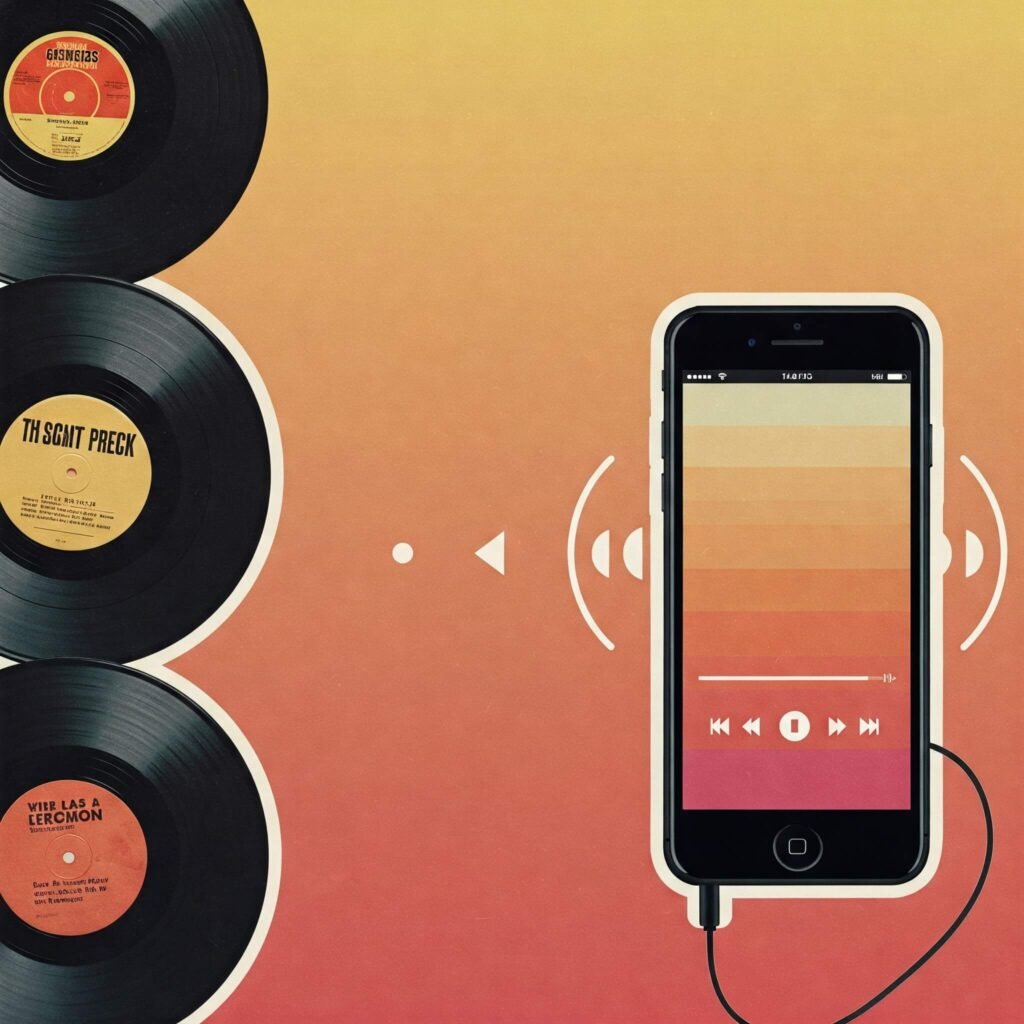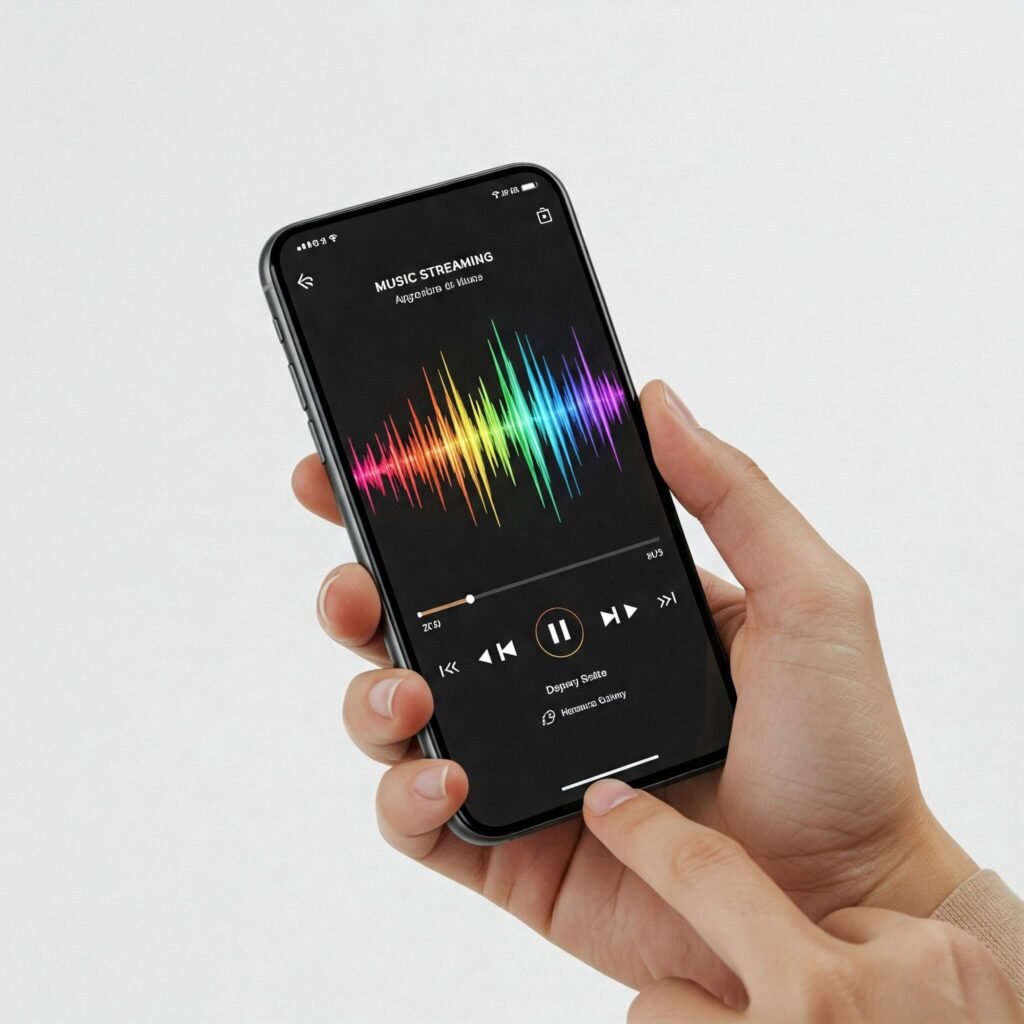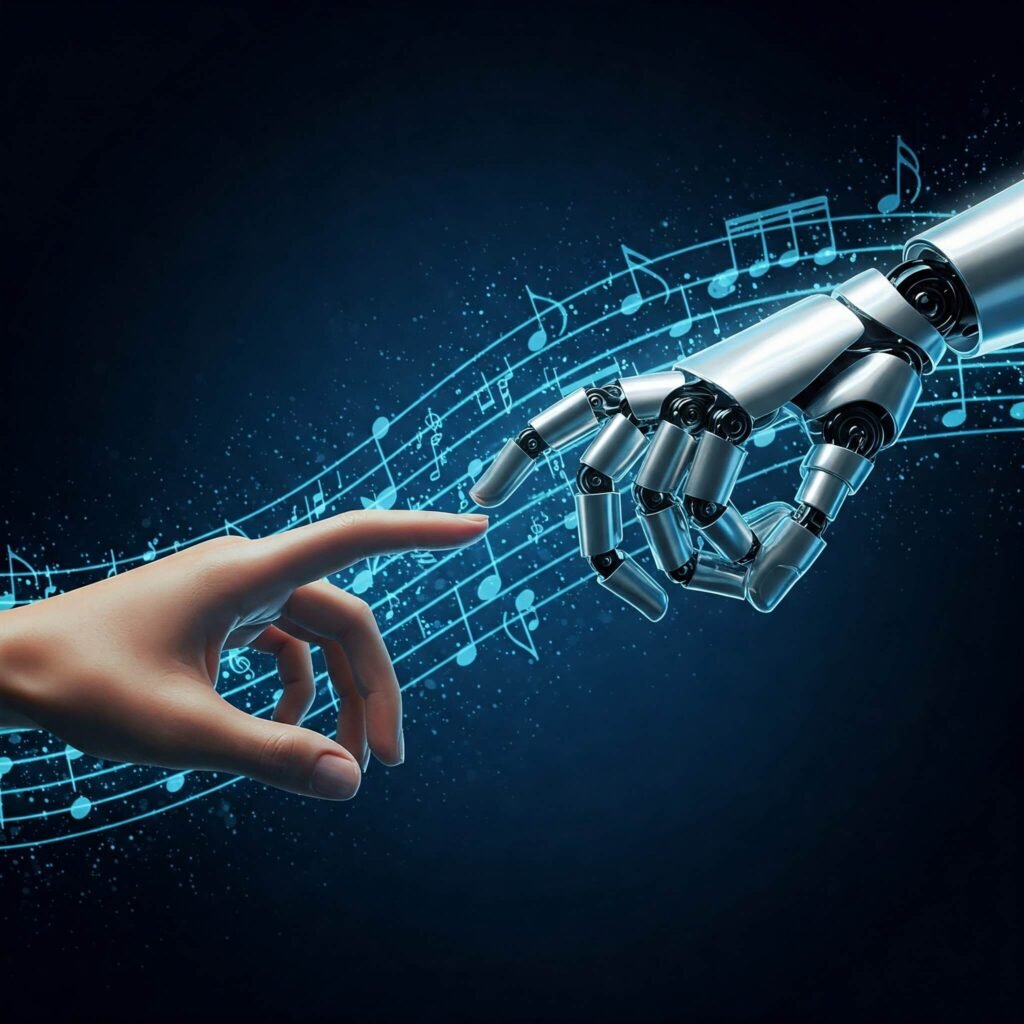The evolution of music in the digital age has transformed how we create, share, and experience music. From vinyl records to Spotify playlists, technology has reshaped the music industry at breakneck speed. But what’s next? This blog dives into the milestones of music’s digital journey, current trends, and bold predictions for the future, offering insights for fans, artists, and industry insiders alike.

The Rise of Music Streaming: A Game-Changer in the Digital Age
The evolution of music began its seismic shift with the advent of music streaming. Platforms like Spotify, Apple Music, and YouTube redefined accessibility, giving listeners instant access to millions of songs. According to Statista, global music streaming revenue reached $26.4 billion in 2023, highlighting its dominance.
Why Streaming Took Over
- Convenience: Playlists and algorithms curate personalized experiences.
- Affordability: Subscriptions offer unlimited access for a fraction of physical media costs.
- Global Reach: Artists can reach audiences worldwide without major label backing.
However, streaming’s rise hasn’t been without challenges. Artists often earn pennies per stream, sparking debates about fair compensation. Platforms are now exploring new models, like Bandcamp, which prioritizes artist-friendly payouts.

Music Production: From Studios to Laptops
The evolution of music production has democratized creativity. Digital Audio Workstations (DAWs) like Ableton Live and GarageBand allow anyone with a laptop to produce professional-quality tracks. This shift has birthed genres like lo-fi hip-hop and empowered independent artists.
Key Innovations in Music Production
- Affordable Tools: Software like FL Studio costs less than $100, compared to thousands for studio time.
- AI Plugins: Tools like iZotope’s Neutron use AI to enhance mixing and mastering.
- Cloud Collaboration: Platforms like Splice enable global teamwork, connecting producers across continents.
These advancements have lowered barriers, but they’ve also flooded the market with content, making it harder for artists to stand out. Quality and branding are now critical for success.
AI and the Future of Music Creation: Evolution of Music
Artificial intelligence is driving the next phase of the evolution of music. AI tools like AIVA can compose original pieces, while platforms like Amper Music generate custom tracks for videos in seconds. In 2024, AI-generated music accounted for 5% of new releases, per Billboard.
How AI is Shaping Music
- Personalization: AI curates hyper-specific playlists based on mood or activity.
- Composition: Artists use AI to experiment with new sounds or overcome creative blocks.
- Ethical Concerns: Questions arise about originality and the role of human creativity.
AI’s potential is limitless, but it’s not a replacement for human emotion. The future lies in collaboration between artists and algorithms, blending soul with science.

Virtual Concerts and Immersive Experiences: Evolution of Music
The evolution of music extends to how we experience live performances. Virtual concerts, popularized during the pandemic, are here to stay. Platforms like Fortnite and Wave host immersive shows, blending music with gaming and augmented reality.
Benefits of Virtual Concerts
- Accessibility: Fans worldwide can attend without travel costs.
- Innovation: Artists experiment with avatars and interactive visuals.
- Revenue Streams: Virtual ticket sales and merchandise offer new income sources.
In 2023, Travis Scott’s Fortnite concert drew 12.3 million viewers, proving the power of digital stages. Expect hybrid events—combining in-person and virtual elements—to dominate the future.
What’s Next for the Evolution of Music?
The evolution of music is far from over. Here are bold predictions for the next decade:
- Blockchain and NFTs: Decentralized platforms will empower artists to sell directly to fans, bypassing middlemen.
- Spatial Audio: Immersive soundscapes, like Apple’s Spatial Audio, will redefine listening experiences.
- Metaverse Integration: Music will become a core part of virtual worlds, with concerts and festivals in digital realms.
To stay ahead, artists must embrace technology while preserving authenticity. Fans, meanwhile, can expect richer, more interactive experiences.
Actionable Takeaways for Artists and Fans
- For Artists: Experiment with AI tools and virtual platforms to expand your reach. Focus on storytelling to stand out in a crowded market.
- For Fans: Explore niche streaming platforms to discover independent artists. Attend a virtual concert for a unique experience.
- For Industry Pros: Invest in immersive technologies like spatial audio to meet evolving consumer demands








































